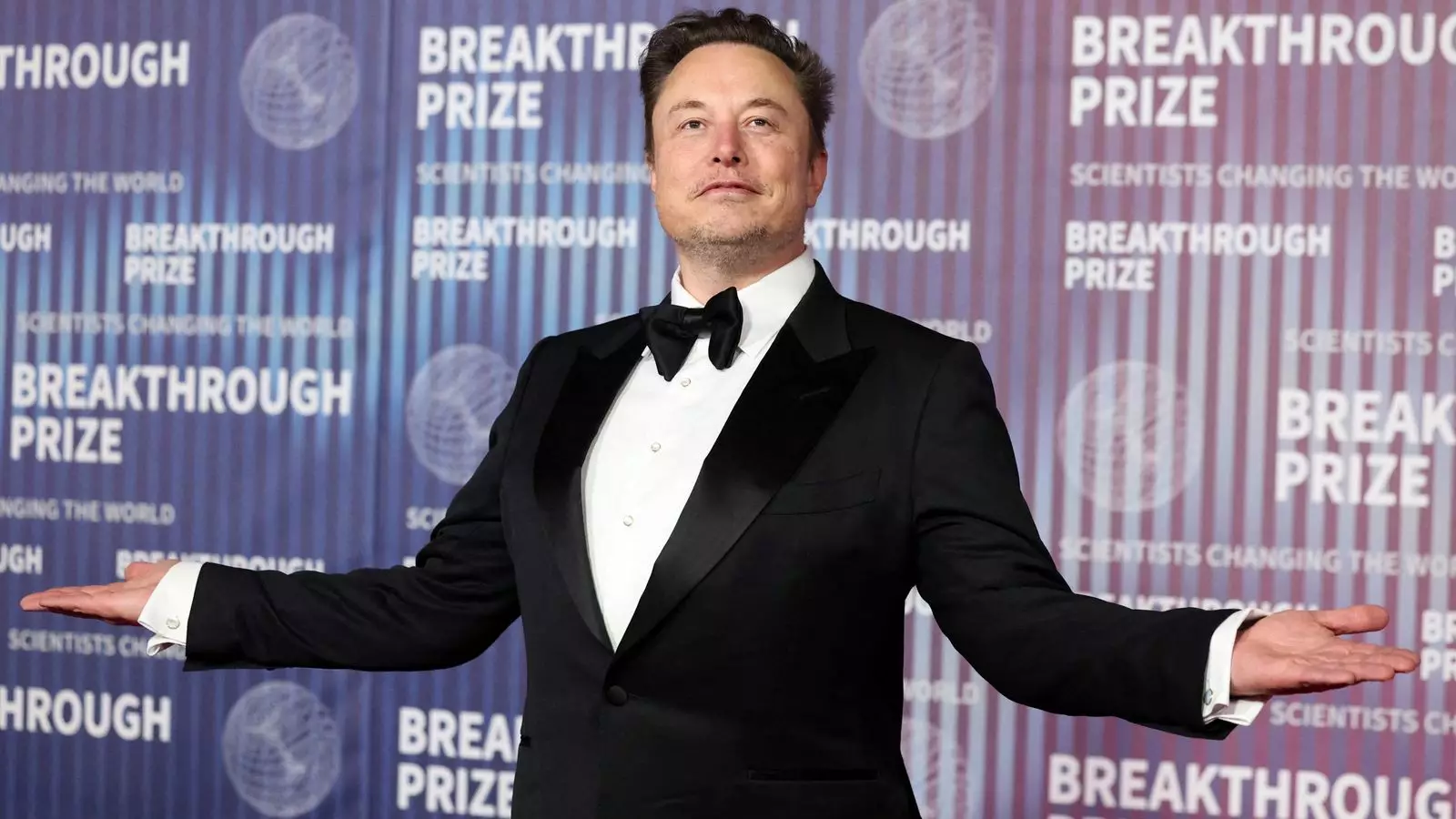The emergence of social media as a formidable platform for political discourse has reshaped the way citizens interact with their elected officials. In recent events, tech billionaire Elon Musk has inserted himself into British politics, drawing significant attention to the repercussions of online behavior. Musk’s involvement is symptomatic of a growing trend where tech magnates influence political narratives through their platforms, often igniting fierce debates on accountability and freedom of speech.
Musk’s confrontation with UK Prime Minister Sir Keir Starmer centered around a critical issue: the charge that social media is complicit in amplifying false accusations and inflammatory rhetoric. The catalyst for this confrontation was the violent unrest that erupted in response to misleading claims about the suspect in the Southport stabbings, who was alleged to be an asylum seeker. The ensuing riots underscored the dangers posed by unchecked information on platforms like Twitter, now rebranded as X, which Musk has insisted embodies a commitment to free speech.
Musk’s latest foray into British politics came at an opportune moment when newly elected Labour MP Lauren Edwards found herself under scrutiny for past offensive tweets. Resurfacing tweets from over a decade ago sparked outrage and led to her public apology, where she acknowledged she had made a “significant error of judgement.” However, the lack of specificity in her apology drew criticism, as many questioned the sincerity of her remorse.
Musk’s decision to highlight one of these tweets, showcasing derogatory language regarding Estonian individuals, the timing and tone of the post served as a torch to set the political flames ablaze. With his vast following, Musk’s shares rapidly escalated the discussion around Edwards, morphing it into a global conversation on the permanence of online behavior and the consequences that follow.
Sir Keir Starmer has emphasized the necessity of accountability in digital interactions, reiterating that online spaces should not be exempt from lawful conduct. He responded to the backlash against Edwards by asserting a clear message: inciting violence online entails repercussions. This stance reflects a broader shift in how political figures and the public are beginning to view online interactions—less as personal opinions and more as actions that carry significant societal weight.
The reactions to Musk’s interventions were varied, ranging from calls for Edwards to resign to demands for criminal charges against her. This divergence of opinions illustrates a growing awareness of the complex interplay between personal expression and public responsibility in the age of social media. It raises essential questions about the boundaries of free speech, particularly in a political context where words can incite actions.
The dilemma presented by Musk’s actions encapsulates a larger debate about the role of individuals wielding disproportionate influence over public discourse. While Musk champions free speech, his utilization of social media to amplify defamatory content directly contradicts this ideal. The irony lies in the fact that, despite advocating for a platform free from censorship, Musk simultaneously dispatched his 193.4 million followers to scrutinize Edwards, effectively unleashing a horde of public critique that borders on harassment.
The realm of politics is inherently contentious, and the involvement of tech billionaires like Musk only heightens the stakes. The situation is a stark reminder that the permanence of online expressions comes with consequences, and the implications of those expressions can rapidly spiral out of control—transforming personal mistakes into public spectacles.
Moving forward, it is crucial for both political entities and their constituents to engage in meaningful conversations about the impact of digital communication. The interplay of personal accountability and public discourse will continue to evolve, particularly in a time marked by increasing polarization and the ubiquitous presence of social media.
Ultimately, the intersection of politics and technology requires a nuanced understanding of the responsibilities that come with both verbal expression and digital advocacy. As officials like Sir Keir Starmer push for accountability, it is evident that the political landscape must adapt to the realities of an interconnected world where the stakes of a tweet extend far beyond its character limit.


Leave a Reply